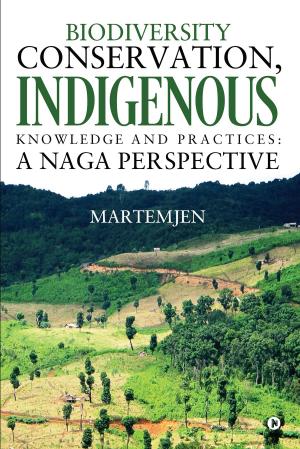Transformations of the Buddhist Community in Modern China
Nonfiction, Religion & Spirituality, Eastern Religions, Buddhism| Author: | Jayeeta Ganguly | ISBN: | 9781947752498 |
| Publisher: | Notion Press | Publication: | August 31, 2017 |
| Imprint: | Notion Press | Language: | English |
| Author: | Jayeeta Ganguly |
| ISBN: | 9781947752498 |
| Publisher: | Notion Press |
| Publication: | August 31, 2017 |
| Imprint: | Notion Press |
| Language: | English |
Buddhism, one of the greatest world religions, spans 2500 years of Asian history. It is a diverse complexity of not only doctrines and institutions, but also ritual, moral, devotional and meditative practices. Since the Awakening of Gautama Buddha in the fifth century B.C.E., Buddhism has focused on the realization of enlightenment through the cultivation of morality, meditation and wisdom. While the vast array of Buddhist religious and cultural forms defines the breadth of the experience of Buddhism, its profound spiritual quest for enlightenment defines its depth.
As Buddhism has evolved over the last few decades, it may be speculated that Buddhism has become an indispensable part of China that could not be ignored even by the Communist regime. Since the founding of New China in 1949, major reforms have taken place that have changed the lives of the monks and nuns and Buddhist lay devotees.
Very few Indian scholars have endeavoured to study this field. A humble attempt is being made here to analyse the relevant conditions of Buddhism in this regard from available materials in English and Chinese. In the present juncture of Sino-Indian relations, the present study will hopefully be of contemporary significance.
Buddhism, one of the greatest world religions, spans 2500 years of Asian history. It is a diverse complexity of not only doctrines and institutions, but also ritual, moral, devotional and meditative practices. Since the Awakening of Gautama Buddha in the fifth century B.C.E., Buddhism has focused on the realization of enlightenment through the cultivation of morality, meditation and wisdom. While the vast array of Buddhist religious and cultural forms defines the breadth of the experience of Buddhism, its profound spiritual quest for enlightenment defines its depth.
As Buddhism has evolved over the last few decades, it may be speculated that Buddhism has become an indispensable part of China that could not be ignored even by the Communist regime. Since the founding of New China in 1949, major reforms have taken place that have changed the lives of the monks and nuns and Buddhist lay devotees.
Very few Indian scholars have endeavoured to study this field. A humble attempt is being made here to analyse the relevant conditions of Buddhism in this regard from available materials in English and Chinese. In the present juncture of Sino-Indian relations, the present study will hopefully be of contemporary significance.















